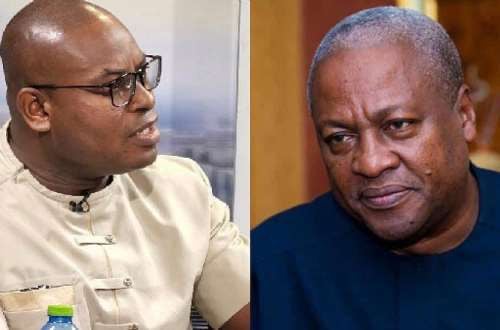The tragic loss of eight lives at the AngloGold Ashanti mining site in Obuasi on January 18, 2025, has sparked a heated political debate in Ghana, with accusations and counter-accusations flying between the ruling New Patriotic Party (NPP) and the opposition National Democratic Congress (NDC). The incident, which involved a confrontation between armed illegal miners and military personnel, resulted in the deaths of seven miners and one soldier. The NPP, through its National Communications Director, Richard Ahiagbah, has placed the blame squarely on the shoulders of former President John Mahama and the NDC, alleging that their inaction against lawlessness within their ranks contributed to the tragic events. Ahiagbah argues that the NDC’s failure to curb what he describes as a culture of impunity among its members emboldened the illegal miners to breach the mine’s security, leading to the deadly confrontation.
Ahiagbah’s statement contends that the NDC fostered an environment where its members felt empowered to take the law into their own hands, often under the misguided belief that their party held power. This, he claims, directly led to the tragic incident at the Obuasi mine. He urges Ghanaians to hold Mahama and the NDC accountable for the loss of life, emphasizing the need for political leaders to actively discourage and condemn illegal activities within their parties. The NPP’s narrative paints a picture of a negligent NDC, whose alleged inaction created a climate of lawlessness that ultimately culminated in the Obuasi tragedy.
The NPP’s accusations against the NDC raise critical questions about the responsibility of political parties in maintaining law and order. Ahiagbah’s statement implies that political parties have a duty to actively discourage unlawful behavior among their members and supporters, and that failure to do so can have serious consequences. This highlights the complex relationship between political rhetoric, party loyalty, and the rule of law. The incident serves as a stark reminder of the potential for political tensions to spill over into violence and the importance of responsible leadership in preventing such occurrences.
The government’s response to the incident has been twofold. President Mahama has ordered a thorough investigation into the circumstances surrounding the clash, with the aim of identifying and prosecuting those responsible for the violence. This demonstrates a commitment to upholding the rule of law and ensuring accountability for the tragic events. Simultaneously, the government has instructed AngloGold Ashanti, the mining company at the center of the incident, to provide financial support to the families of the deceased and to cover the medical expenses of the injured soldier. This gesture aims to provide immediate relief and support to those affected by the tragedy.
However, the underlying issues that contributed to the incident remain complex. Illegal mining, often driven by poverty and lack of economic opportunity, is a persistent challenge in Ghana. Addressing this issue requires a multi-faceted approach that includes providing alternative livelihoods, strengthening law enforcement, and promoting responsible mining practices. The Obuasi tragedy underscores the urgent need for a comprehensive strategy to address illegal mining and its associated risks.
The clash at the Obuasi mine serves as a tragic reminder of the fragility of peace and security. While the government’s commitment to investigation and providing support to the affected families is commendable, the incident also highlights the need for deeper reflection on the role of political parties in promoting peaceful coexistence and upholding the rule of law. Addressing the root causes of illegal mining and fostering a culture of respect for the law are crucial steps towards preventing future tragedies of this nature. The political fallout from the incident continues to unfold, with the NPP’s accusations against the NDC likely to shape the political discourse in Ghana for the foreseeable future.


